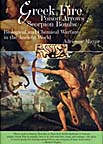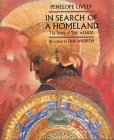
I finished the two books by Jennifer MacAire - "Time for Alexander" and "Heroes In The Dust". She does a great job of characterization although her tales are so erotic I would feel obligated to give them a "parental discretion" warning in a review. :-) (At one point, the heroine, Ashley, engages in threesome with Alexander and Hephaistion. I usually don't read romance novels so perhaps this is normal in the romance genre). However, I must admit I enjoyed them immensely! Her history was significantly different than that related by Mary Renault, though.
Key differences:
Alexander killed Hephaistion's brother - ??? (MacAire)
Hephaistion was an Athenian (MacAire) - Hephaistion was the son of a Macedonian noble Amyntas (Renault, et al).
Alexander had "parti-colored eyes" (one brown and one blue) (MacAire) - Alexander had blue eyes (Renault, et al)
Greek soldiers ran around mostly nude (MacAire) - Greek soldiers wore chitons, breastplates, greaves and helmets (Renault, et al)
Parmenion was like a father to Alexander. When his son Philotas failed to warn Alexander of an assassination plot three different times, Philotas was arrested and eventually executed. Alexander himself executed Parmenion at Parmenion's request because of the humiliation of his son's treachery to his king. (MacAire) - Parmenion was one of Philip's old generals that, when given a letter forged by Alexander and purporting to be from Philotas saying Alexander was to be assassinated, smiled - indicating his complicity with the plot - and was subsequently killed by Alexander's officer (Renault).
Barsine bore a son to Alexander then died sometime afterwards from complications of the birth. (MacAire) -
Barsine was
executed by Cassander, son of Antipater, sometime after the death of Alexander, when there was an effort to restore Heracles (Barsine's son by Alexander) to the throne. (see reference)
Seleucas was a freed slave who worked his way up the ranks in Alexander's army (MacAire) -
Seleucas was a 23-year-old Macedonian officer that accompanied Alexander on the Persian campaign gaining particular fame in the battles in India. (see reference)
Alexander was a childhood acquaintance of Darius (MacAire) ???
Olympias was Philip's concubine (MacAire) - Olympias, the Princess of Epirus, was Philip's first wife (Renault et al)
I can find no evidence that Olympias or Aristotle ever visited Alexander in Persia (Literary license? - it made for an interesting story point though)
I was also confused by MacAire's references to Nearchus (Alexander's admiral) having a personal obsession with Alexander. Alexander and Hephaistion's relationship was parmount throughout their lives (Renault et al).
However, I researched MacAire's reference to the god Marduk that demanded human sacrifice and found that this god did exist in Babylon (I found an interesting link about it at a site detailing
the history behind the series Stargate)
Anyway, I decided to read another biography of Alexander to get a different perspective from Renault's. I had bought Harold Lamb's "Alexander of Macedon" on Ebay so I got it out and started reading it. Talk about a total flip-flop. Harold Lamb makes Alexander sound like a frightened kid that just seemed to do things right by accident. His cavalry charge at Chaeronea was portrayed as just a result of Alexander being so anxious he spurred his horse because he couldn't take the tension any more. According to Lamb, Alexander really didn't want to complete his father's dream of conquering Persia. He just wanted to be a bookworm. I'm going to stick to it and finish it but I much prefer Mary Renault's (and Jennifer's!!!) version based on the account by Arrianus. Lamb may have relied much more on Curtius Rufus who was educated at Plato's academy in Athens after it was financially dominated by Cassander, the son of the Macedonian regent Antipater, who was suspected of possibly poisoning Alexander, and who was responsible for the murder of Alexander's wife Roxanne and their son as well as Alexander's mother, Olympias and possibly even the execution of Alexander's first wife Barsine and her son. I would be much more suspicious of Rufus' account for this reason.
 "In the celebrated epic poem, the Iliad, about noble heroes fighting honorable battles, both sides actually used arrows dipped in snake venom,' said Adrienne Mayor, author of 'Greek Fire, Poison Arrows & Scorpion Bombs: Biological and Chemical Warfare in the Ancient World' (published this month by Overlook Press). "
"In the celebrated epic poem, the Iliad, about noble heroes fighting honorable battles, both sides actually used arrows dipped in snake venom,' said Adrienne Mayor, author of 'Greek Fire, Poison Arrows & Scorpion Bombs: Biological and Chemical Warfare in the Ancient World' (published this month by Overlook Press). "
 "'Can we know the future? Mostly not, it seems. And often it takes us entirely by surprise. But we do regularly make two quite contradictory assumptions about it: that it is unknowable, and that once it's here we saw it coming.'
"'Can we know the future? Mostly not, it seems. And often it takes us entirely by surprise. But we do regularly make two quite contradictory assumptions about it: that it is unknowable, and that once it's here we saw it coming.'
 "Inspired by the ancient masterpiece The Aeneid, by Roman poet Virgil, modern-day author Penelope Lively has penned a poignant retelling of the arduous journeys of Trojan warrior Aeneas. Doubtful young readers will be amazed at how readable and downright gripping these old tales really are, from the devastating ruse the Greeks wreak on the city of Troy, to the tempestuous seas the escaping Trojans cross and recross, to the violent battles they fight, all in the name of finding their true homeland."
"Inspired by the ancient masterpiece The Aeneid, by Roman poet Virgil, modern-day author Penelope Lively has penned a poignant retelling of the arduous journeys of Trojan warrior Aeneas. Doubtful young readers will be amazed at how readable and downright gripping these old tales really are, from the devastating ruse the Greeks wreak on the city of Troy, to the tempestuous seas the escaping Trojans cross and recross, to the violent battles they fight, all in the name of finding their true homeland."
 By George Green
By George Green
 by Robert Silverberg
by Robert Silverberg
 by Dan Simmons
by Dan Simmons
 I finished the two books by Jennifer MacAire - "Time for Alexander" and "Heroes In The Dust". She does a great job of characterization although her tales are so erotic I would feel obligated to give them a "parental discretion" warning in a review. :-) (At one point, the heroine, Ashley, engages in threesome with Alexander and Hephaistion. I usually don't read romance novels so perhaps this is normal in the romance genre). However, I must admit I enjoyed them immensely! Her history was significantly different than that related by Mary Renault, though.
I finished the two books by Jennifer MacAire - "Time for Alexander" and "Heroes In The Dust". She does a great job of characterization although her tales are so erotic I would feel obligated to give them a "parental discretion" warning in a review. :-) (At one point, the heroine, Ashley, engages in threesome with Alexander and Hephaistion. I usually don't read romance novels so perhaps this is normal in the romance genre). However, I must admit I enjoyed them immensely! Her history was significantly different than that related by Mary Renault, though.
 "In this historical novel the author takes on the infamous, incestuous, insane and blood-stained Roman emperor who made his horse a consul. He peels away the mask of the monster of popular myth to expose the real man and explore the reality of his brief but tempestuous reign. "
"In this historical novel the author takes on the infamous, incestuous, insane and blood-stained Roman emperor who made his horse a consul. He peels away the mask of the monster of popular myth to expose the real man and explore the reality of his brief but tempestuous reign. "
 "Set in C17th B.C., Volume One in the stunning new QUEEN OF FREEDOM trilogy, from the bestselling author of RAMSES. Egypt is a shadow of its former self. An army of barbarians, mounted on horse-drawn chariots, has swept through the Empire, destroying everything in its path. Known as the Hyksos, the 'leaders from foreign lands', they have reduced the land of the pharaohs to slavery. Only one city resists: Thebes, where the widow of the last pharaoh, Teti the Small, still reigns. But Teti knows it's only a matter of time before her men succumb to the barbarities of the cruel Hyksos. She has an 18-year-old daughter, however: Ahotep. Fierce, beautiful and courageous, Ahotep will never accept defeat. And so she decides to re-ignite the flame of Egyptian resistance. All by herself. "
"Set in C17th B.C., Volume One in the stunning new QUEEN OF FREEDOM trilogy, from the bestselling author of RAMSES. Egypt is a shadow of its former self. An army of barbarians, mounted on horse-drawn chariots, has swept through the Empire, destroying everything in its path. Known as the Hyksos, the 'leaders from foreign lands', they have reduced the land of the pharaohs to slavery. Only one city resists: Thebes, where the widow of the last pharaoh, Teti the Small, still reigns. But Teti knows it's only a matter of time before her men succumb to the barbarities of the cruel Hyksos. She has an 18-year-old daughter, however: Ahotep. Fierce, beautiful and courageous, Ahotep will never accept defeat. And so she decides to re-ignite the flame of Egyptian resistance. All by herself. "